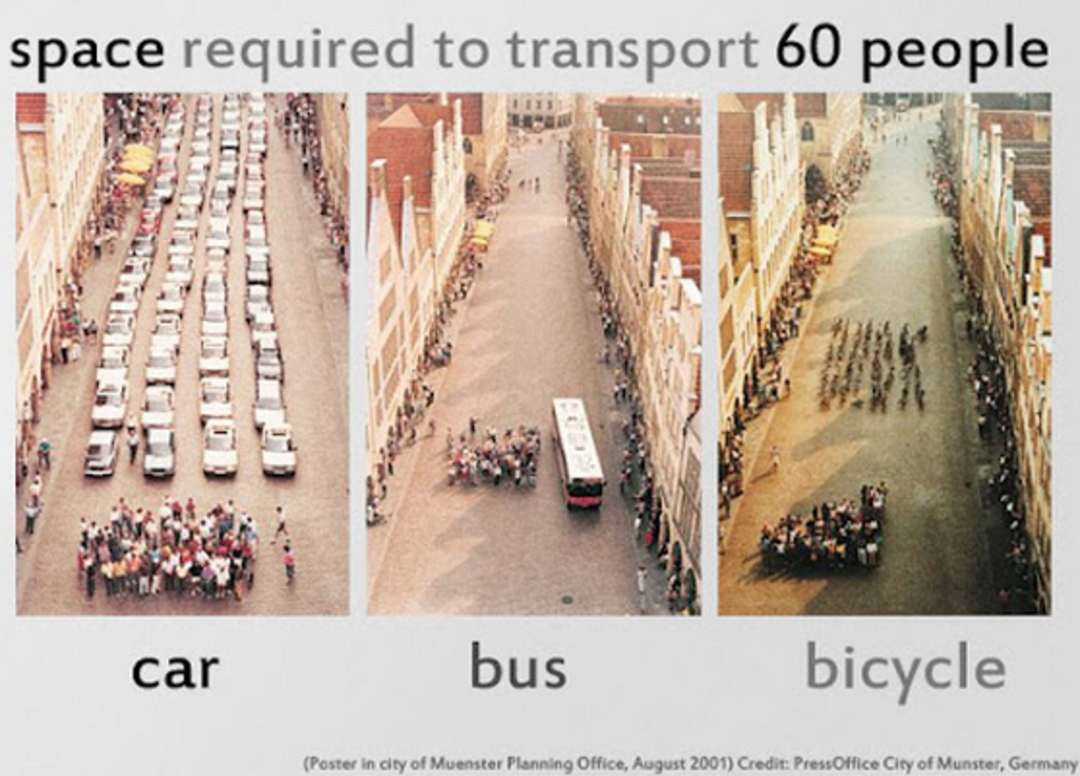Transportation Lobby Group, Pessimistic About State Deal, Releases Tepid 2014 Agenda

The head of the Transportation Choices Coalition (which celebrates its 20-year anniversary tonight), Rob Johnson, was subdued at the group's monthly Friday Forum last week, where the group discussed the floundering state transportation package (negotiators in the house and senate are meeting today, reportedly with little progress) and the group's almost moribund 2014 legislative agenda (just three items, all familiar retreads from previous sessions).
The Transportation Package
In many ways, groups like TCC, which advocates for alternatives to highway construction and driving alone, would be better off if the state fails to pass a transportation package this year.
In addition to the problematic aspects of the package we've mentioned before (the senate's $12.3 billion proposal would pay mostly for road expansion, would raid the state's toxics cleanup account to pay for stormwater mitigation on road projects, and would include virtually nothing for transit, bike, and pedestrian projects), Johnson pointed out glumly that the proposal on the table includes zero tolling on I-90 to pay for 520 (both the house and senate package would fund 520 with a gas tax); would include "reducing congestion" among the state's explicit transportation goals; and would require "labor reform"—code for, among other things, reducing prevailing-wage and apprecenticeship requirements on road projects.
Both proposals do include a provision that would allow King County Metro and some other transit systems to ask the voters for new funding to save bus service—a motor-vehicle excise tax, indexed to the value of a person's car.
But environmental and transit advocates might find themselves better off going with "Plan B"—a nuclear-option proposal from King County Executive Dow Constantine to instead pass a vehicle license fee (a flat fee no matter how much your car is worth, or not worth), plus a (regressive) sales tax. It's not a perfect plan by any stretch, but it may be better than what the house and senate are working to come up with, which increasingly looks like Roads and Transit (or R-51) on steroids.
Proactive Goals
Johnson and TCC members also discussed the group's upcoming legislative agenda. It's modest, to say the least: $14 million more, per biennium for the state's Commute Trip Reduction board, which currently receives just $6 million every two years for its programs to promote alternatives to driving alone; promoting "right-sizing" at WSDOT—or, put another way, discouraging massively overengineered projects like the SR 519 overpass over Royal Brougham Way in Seattle; and expanding talks about public-private partnerships to pay for transportation projects if the package fails.
Additionally, TCC still hopes to get health included in the state's list of transportation goals (including health would, obviously, discourage massive, sprawl-inducing highway construction for polluting cars and encourage "alternatives" like bike and ped projects)—particularly if senate Republicans succeed in getting "congestion relief" included on the list.
"2014's going to be a weird year," Johnson said, with the senate Majority Coalition Caucus—the Republican-dominated group that took control of the senate earlier this year—one member stronger (Republican Rep. Jan Angel beat incumbent Democratic incumbent Sen. Nathan Sclicher in November). Meanwhile, most members of the legislature (all of the house, and half the senate) are up for reelection, making the multiple special sessions that happened this year less likely. In short: There will likely be "less appetite" for a big pro-transportation choices agenda next year, Johnson predicted.
House and senate negotiators are expected to wrap up today's discussions around 5; we'll have a report on how those talks went later this afternoon.




